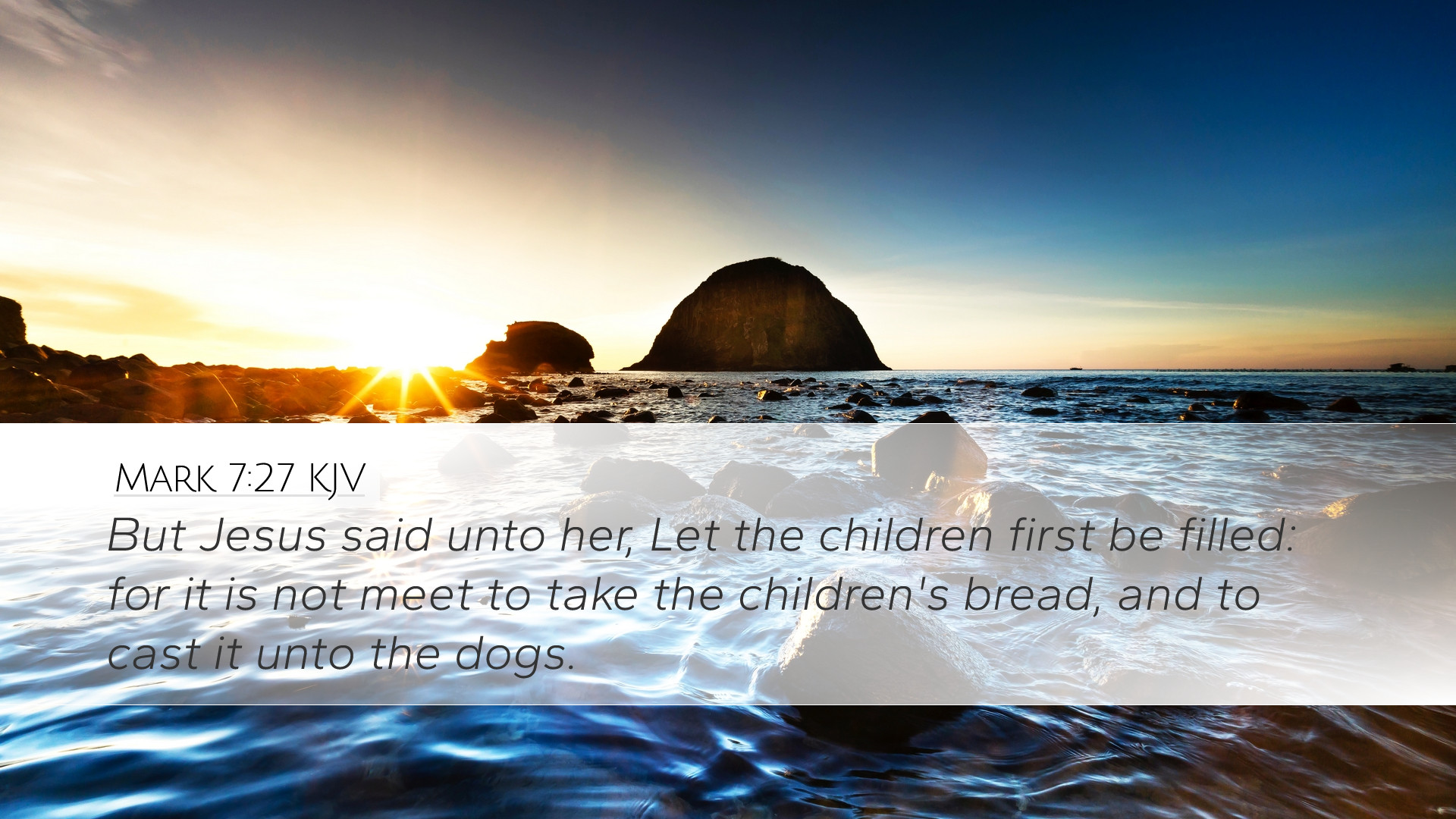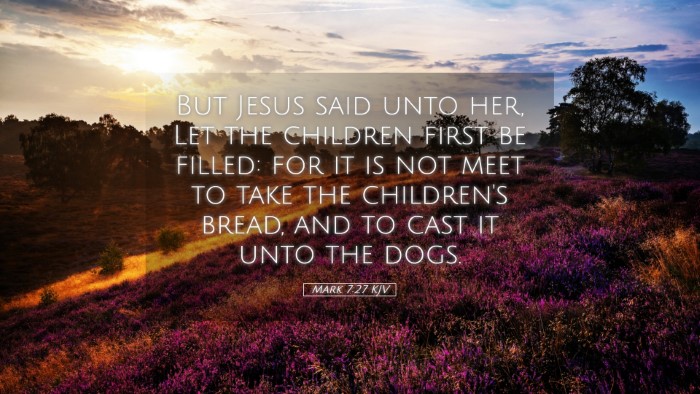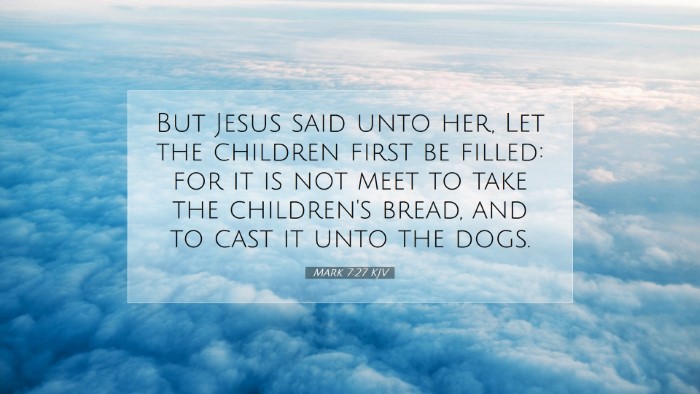Commentary on Mark 7:27
Verse: "But Jesus said to her, 'Let the children be fed first, for it is not right to take the children’s bread and throw it to the dogs.'" - Mark 7:27
Introduction
This verse presents a critical exchange between Jesus and a Syrophoenician woman, encapsulating themes of faith, inclusion, and the nature of Jesus' mission. The dialogue prompts theological reflection on the nature of Jesus’ ministry and the role of faith in receiving God’s grace.
Contextual Background
The setting of this passage occurs during Jesus' ministry outside of Jewish territory, emphasizing His mission to both Jews and Gentiles. Understanding this context is pivotal for grasping the gravity of Jesus' response to the woman.
Matthew Henry's Insights
Matthew Henry highlights the test of faith that the Syrophoenician woman journeys through. He notes that Jesus’ initial response might sound harsh, yet it serves as a moment to reveal her unwavering faith. Henry emphasizes that Jesus’ words about "children" and "dogs" reflect the cultural barriers that the Gospel transcends.
"The woman is called a dog in comparison with the children, yet she humbly accepts the title, displaying her faith and recognition of the grace that is extended even to the least," he writes. Henry encourages readers to see the woman’s persistence as a model for all who seek divine help.
Albert Barnes' Commentary
Albert Barnes provides insight on the metaphorical language used in this passage. He states that the term "dogs" was commonly used in Jewish culture to refer to Gentiles, denoting a division that Jesus appears to acknowledge. However, he also explains that Jesus uses this language not to alienate the woman but to challenge her faith.
Barnes asserts that "Jesus’ response was not meant to convey contempt but to provoke deeper engagement and sincerity in the woman's plea." Barnes emphasizes that the woman’s faith articulates a profound understanding of God’s abundant grace, which transcends ethnic and cultural boundaries.
Adam Clarke's Perspective
Adam Clarke's commentary delves into the theological implications of this interaction. He notes that this passage signifies a turning point where the Gospel begins to open up to the Gentiles. Clarke points out that the woman's request challenges the norms of the time and illustrates a transformative moment in Jesus’ ministry.
Moreover, Clarke argues that Jesus' metaphor signifies the need for the Gospel to first reach the Jews as God's chosen people before it spreads to the Gentiles. He highlights that this does not imply exclusion but rather an order of operation in God's redemptive plan.
Theological Reflections
This interaction raises profound theological reflections on grace, faith, and the mission of Jesus. The woman exemplifies the spirit of humility and persistence that aligns with faith. Her reply, acknowledging Jesus’ metaphor, demonstrates a remarkable understanding of divine mercy.
Furthermore, this verse challenges contemporary readers to consider their own understanding of God’s grace. The metaphor of the "dogs" invites reflection on inclusivity and the expansive nature of God’s love. Can we, as modern believers, embrace those we might consider 'outsiders' into the fold of God’s grace?
Applications for Pastors and Theologians
-
Understanding Cultural Context: It is crucial for church leaders to appreciate the cultural dynamics at play when discussing issues of inclusion and exclusion within the community of faith.
-
Encouraging Persistent Faith: Like the Syrophoenician woman, believers are encouraged to approach God with confidence and persistence, believing in His readiness to respond to their needs.
-
Exploring Grace: This passage invites a deeper exploration of the nature of grace and the ways it is given. How can the church reflect God’s grace to all, regardless of background?
Conclusion
Mark 7:27 serves as a powerful reminder of the nature of faith and the breadth of God's love. The exchange between Jesus and the Syrophoenician woman invites readers to reflect on how their own faith interacts with cultural understandings of God's promises. As pastors, theologians, and students of the Bible, we are called to embrace the inclusivity of the Gospel and actively engage in conversations that reflect the grace of God extended to all people.


